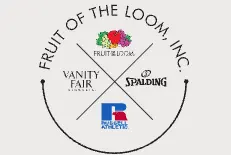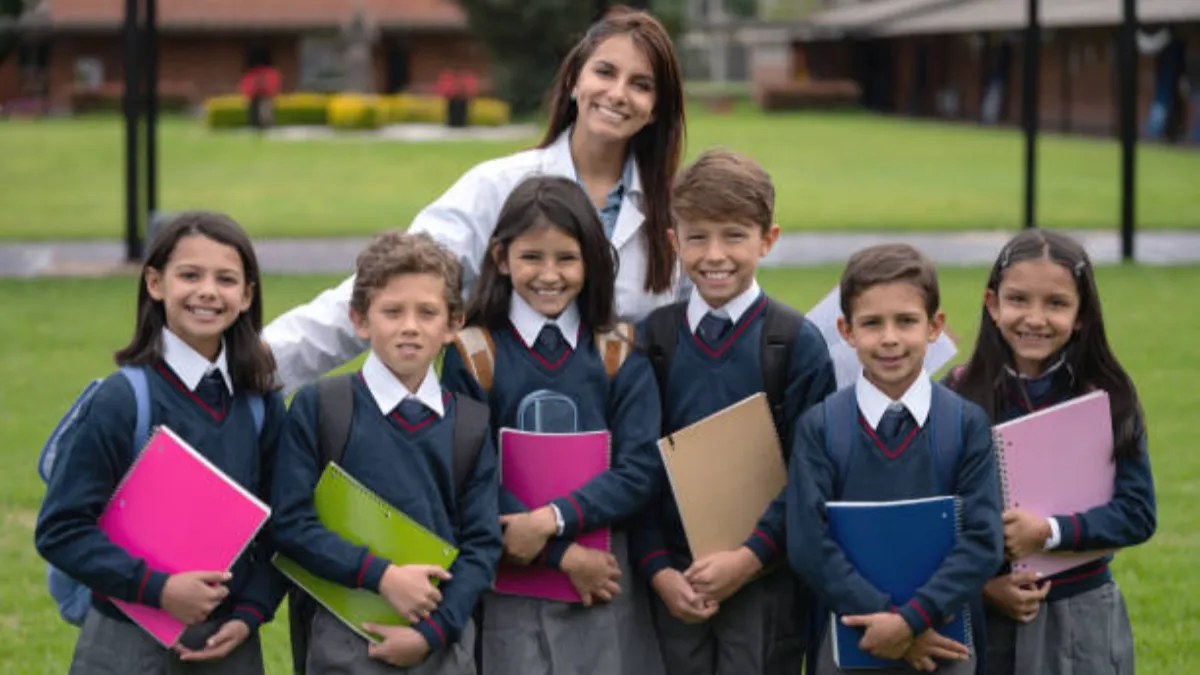Introduction
For private label and custom kids’ apparel, choosing the right manufacturing partner directly affects your margins, brand reputation, and long‑term scalability.
The 9 suppliers below are all experienced players in global apparel, with proven capabilities in children’s wear, bulk production, and brand collaboration. This listing also looks at how OEM vs. ODM models work in kidswear.
Одежда Ханчжоу

- Founded: 2009
- Employees: 80
- Certifications: Adheres to international quality standards and cooperates with ethical fabric suppliers.
- Key Products: Custom Kids’ Clothing (T-shirts, dresses, activewear), Women’s Fashion.
Specific Description: Hangzhou Garment is a leading kids clothing manufacturer and OEM kids clothing manufacturer in China, specializing in custom kids’ and women’s apparel for global brands. With flexible order sizes starting at just 200 pieces per style and color, the company is ideal for startups and e-commerce sellers seeking reliable, small-batch production or efficient bulk orders.
Hangzhou Garment combines ethical material sourcing, rapid sampling (3-5 days), and strict quality control at every stage to ensure high product standards and seamless brand customization. Their expert design team also offers custom graphics, packaging, and labels, helping brands stand out in the competitive kidswear market.
Crystal International Group

- Founded: 1970
- Employees: Approx. 70,000+
- Certifications: Global Recycled Standard (GRS), Organic Cotton Standard (OCS), Better Cotton Initiative (BCI), WRAP.
- Key Products: Lifestyle wear, Denim, Knits (Casual wear for kids and adults), Sportswear.
Specific Description: Headquartered in Hong Kong, Crystal is one of the world’s largest apparel manufacturers. They operate a multi-country manufacturing platform (Vietnam, China, Cambodia, Bangladesh, Sri Lanka) and are a key supplier for global giants like Uniqlo, Gap, and H&M, with a strong focus on sustainability and “Net Zero 2050” goals.
Группа Эскуэль

- Founded: 1978
- Employees: 35,000+
- Certifications: Oeko-Tex Standard 100, GOTS (Global Organic Textile Standard), WRAP.
- Key Products: Premium Cotton Shirts, Knitwear, woven garments (for brands like Ralph Lauren, Tommy Hilfiger).
Specific Description: A knowledge-based innovation company and vertically integrated manufacturer, handling everything from cotton farming (in Xinjiang and elsewhere) to retail. They are renowned for their high-quality cotton textiles and advanced manufacturing technologies, producing over 100 million pieces annually.
ТАЛ Одежда

- Founded: 1947
- Employees: Approx. 26,000
- Certifications: LEED (for factories), Oeko-Tex, WRAP.
- Key Products: Dress Shirts, Trousers, Knits, Outerwear (claims to produce 1 in 6 dress shirts sold in the US).
Specific Description: A global leader in garment manufacturing innovation, known for proprietary technologies like “Wrinkle-Free” and “Stain Defender.” Headquartered in Hong Kong with factories across Asia (Thailand, Vietnam, Ethiopia), they provide advanced supply chain management services (VMI) to major retailers.
Fruit of the Loom

- Founded: 1851
- Employees: Approx. 17,000+ (Global supply chain workforce)
- Certifications: WRAP (Worldwide Responsible Accredited Production), Oeko-Tex Standard 100.
- Key Products: Basic Family Apparel (Underwear, T-shirts, Fleece, Activewear for Men, Women, and Kids).
Specific Description: An iconic American company with a massive, vertically integrated supply chain. Unlike many brands that outsource 100%, Fruit of the Loom manufactures a significant portion of its products in its own facilities, ensuring strict quality and ethical control for mass-market basics.
Too Fabric

- Founded: 2010
- Employees: Approx. 50 (Core qualified staff in Istanbul facility)
- Certifications: Sustainable manufacturing practices (Eco-friendly fabrics).
- Key Products: Custom Clothing (T-shirts, Hoodies, Sweatshirts, Polos – Private Label for Kids & Adults).
Specific Description: A dynamic custom clothing manufacturer based in Turkey. They distinguish themselves with a focus on “sustainable and high-quality service,” offering low minimums (starting from 100 pcs) and full customization (printing, embroidery) for streetwear and fashion brands. 7. KAMUS

- Founded: 1990
- Employees: Approx. 200
- Certifications: High European quality standards (long-term supplier for German and Scandinavian markets).
- Key Products: Children’s Clothing (Coats, dresses, trousers), Uniforms, Ladies’ wear.
Specific Description: A family-owned manufacturer based in Poland with a strong sewing tradition. KAMUS explicitly highlights its expertise in children’s clothing, serving Western European markets with high-quality craftsmanship and reliability in fulfilling complex orders.
DBL Group (Selected from BEXIMCO)

- Founded: 1991
- Employees: 45,000+
- Certifications: Platinum Supplier for H&M, GOTS, Oeko-Tex, LEED Platinum (for facilities).
- Key Products: Knit Garments (T-shirts, Polo shirts, Fleece) – Kids wear accounts for ~40% of capacity.
Specific Description: One of the largest and most sustainable vertically integrated knitwear manufacturers and exporters in Bangladesh. They are a key partner for global brands like H&M, Walmart-George, and Puma, known for their massive capacity (13 million pcs/month) and extensive social/environmental programs.
Ethical Nomads

- Founded: 2017
- Employees: 2-10 (Core studio team managing production network)
- Certifications: GOTS (Global Organic Textile Standard), FLO-CERT (Fairtrade).
- Key Products: Sustainable Basics (Tees, Tops, Hoodies, Pants, Tote bags).
Specific Description: A boutique production studio and consultancy focused entirely on ethical and sustainable manufacturing. Based in Europe/Bali with production partners in India, they specialize in helping brands create eco-friendly collections using organic cotton and circular practices.
OEM vs. ODM in Kidswear Manufacturing
When selecting a kids’ clothing supplier, understanding OEM and ODM models helps you match the factory’s strengths with your brand’s stage and design capabilities. In practice, most leading suppliers operate across both models, but with different emphases.
| Модель | Meaning in Kidswear | Best For |
| OEM (Original Equipment Manufacturer) | You provide tech packs or samples; the factory produces according to your specifications, materials, and branding. | Established brands with in-house designers needing reliable, cost-effective production. |
| ODM (Original Design Manufacturer) | The factory provides existing designs or full collections, which you can customize with your own logo, colors, prints, and minor pattern changes. | New or fast-growing brands seeking speed-to-market and design support without building a full product team. |
For children’s apparel, OEM is ideal if you need unique fits, proprietary prints, or very specific functional details (for example, uniforms or adaptive clothing). ODM, on the other hand, helps brands quickly launch trend‑right collections using proven base patterns, then refine over time as they better understand their customer.
How Hangzhou Garment Helps Global Brands Scale Efficiently
Hangzhou Garment bridges the gap between flexibility and scale for international brands. With a wide children’s range—including school uniforms, T‑shirts, and matching sets—the company can support both niche labels and volume‑driven buyers within one supply network.
From an OEM/ODM perspective, Hangzhou Garment can execute customer‑supplied designs or provide ready structures that brands adapt with their own graphics, trims, and branding. That flexibility allows young labels to start with more guidance, then gradually move toward fully custom collections as their volumes and confidence grow—without needing to change suppliers.
For global kidswear brands that want to consolidate suppliers, improve consistency, and still keep room for creativity, Hangzhou Garment offers a practical blend of specialization, scalability, and long‑term partnership potential in one kids‑focused manufacturing base.




